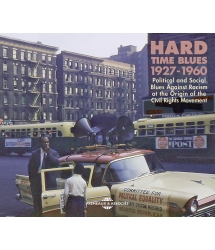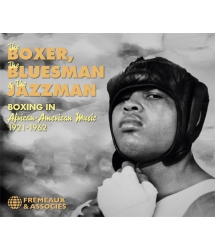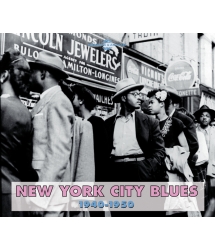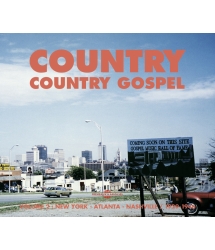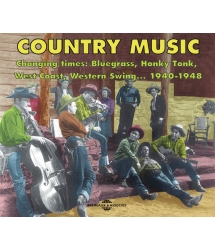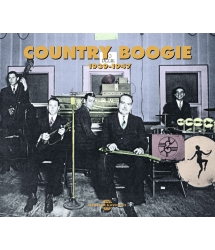- Our Catalog
- Philosophy
- Philosophers of the 20th century and today
- History of Philosophy (PUF)
- Counter-History and Brief Encyclopedia by Michel Onfray
- The philosophical work explained by Luc Ferry
- Ancient thought
- Thinkers of yesterday as seen by the philosophers of today
- Historical philosophical texts interpreted by great actors
- History
- Books (in French)
- Social science
- Historical words
- Audiobooks & Literature
- Our Catalog
- Jazz
- Blues
- Rock - Country - Cajun
- French song
- World music
- Africa
- France
- Québec / Canada
- Hawaï
- West Indies
- Caribbean
- Cuba & Afro-cubain
- Mexico
- South America
- Tango
- Brazil
- Tzigane / Gypsy
- Fado / Portugal
- Flamenco / Spain
- Yiddish / Israel
- China
- Tibet / Nepal
- Asia
- Indian Ocean / Madagascar
- Japan
- Indonesia
- Oceania
- India
- Bangladesh
- USSR / Communist songs
- World music / Miscellaneous
- Classical music
- Composers - Movie Soundtracks
- Sounds of nature
- Our Catalog
- Youth
- Philosophy
- News
- How to order ?
- Receive the catalog
- Manifesto
- Dictionnary











- Our Catalog
- Philosophy
- Philosophers of the 20th century and today
- History of Philosophy (PUF)
- Counter-History and Brief Encyclopedia by Michel Onfray
- The philosophical work explained by Luc Ferry
- Ancient thought
- Thinkers of yesterday as seen by the philosophers of today
- Historical philosophical texts interpreted by great actors
- History
- Books (in French)
- Social science
- Historical words
- Audiobooks & Literature
- Our Catalog
- Jazz
- Blues
- Rock - Country - Cajun
- French song
- World music
- Africa
- France
- Québec / Canada
- Hawaï
- West Indies
- Caribbean
- Cuba & Afro-cubain
- Mexico
- South America
- Tango
- Brazil
- Tzigane / Gypsy
- Fado / Portugal
- Flamenco / Spain
- Yiddish / Israel
- China
- Tibet / Nepal
- Asia
- Indian Ocean / Madagascar
- Japan
- Indonesia
- Oceania
- India
- Bangladesh
- USSR / Communist songs
- World music / Miscellaneous
- Classical music
- Composers - Movie Soundtracks
- Sounds of nature
- Our Catalog
- Youth
- Philosophy
- News
- How to order ?
- Receive the catalog
- Manifesto
- Dictionnary
ANTHOLOGIE 1928-1946
HILLBILLY BLUES
Ref.: FA065
EAN : 3448960206525
Artistic Direction : GERARD HERZHAFT
Label : Frémeaux & Associés
Total duration of the pack : 1 hours 41 minutes
Nbre. CD : 2
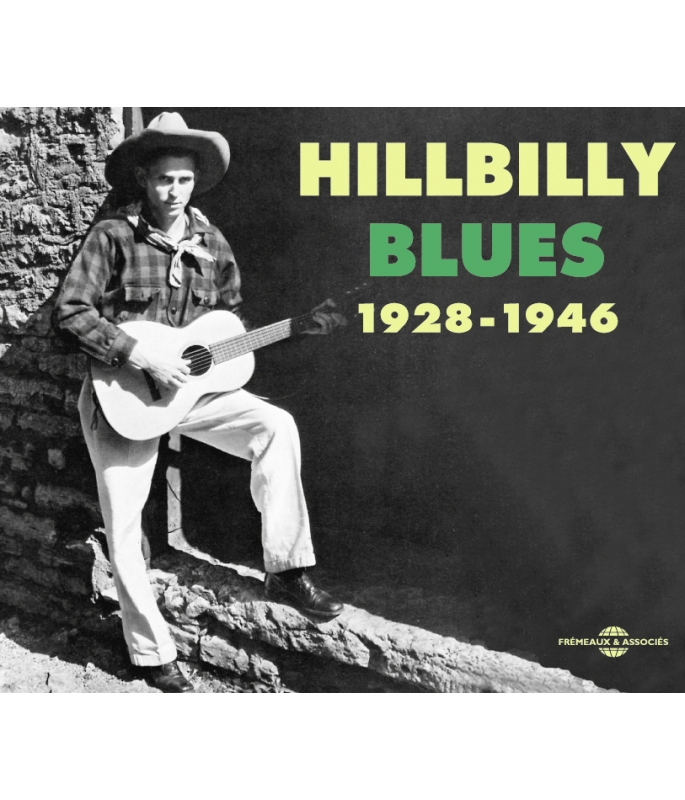
ANTHOLOGIE 1928-1946
- - 10 DE RÉPERTOIRE
- - * * * * LE MONDE DE LA MUSIQUE
- - ENCYCLOPÉDIE DU BLUES (FAYARD)
ANTHOLOGIE 1928-1946
(2-CD set) The blues has been, since its beginnings, played and sung by countless Southern hillbillies. This Hillbilly blues is not a mere copy of the black blues but an original “white” form of blues, Country Music’s Kind of blues! This Hillbilly blues’ anthologie showcases some of the best moments of a long-time neglected genre. Includes a 32 page booklet with both French and English notes.
Selected products

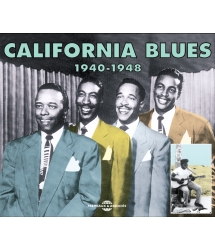
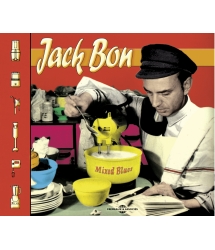
-
PisteTitleMain artistAutorDurationRegistered in
-
1BLUE YODELJIMMIE RODGERSJIMMIE RODGERS00:03:261927
-
2HEAVY HEARTED BLUESTOM DARBYTOM DARBY00:03:161928
-
3FREIGHT TRAIN RAMBLETOM DARBYTOM DARBY00:03:071929
-
4ARABELLA BLUESJIMMIE DAVISJIMMIE DAVIS00:02:211930
-
5SEWING MACHINE BLUESJIMMIE DAVISJIMMIE DAVIS00:03:221932
-
6LONESOME JAILHOUSE BLUESBROTHERS DELMOREANTON DELMORE BROTHERS00:02:581933
-
7CHAIN GANG BLUESRILEY PUCKETTRILEY PUCKETT00:03:011934
-
8EASY RIDER BLUESJIMMIE DAVISTRADITIONNEL00:02:581933
-
9NEW DEAL BLUESBROTHERS ALLENLEE ALLEN00:02:481934
-
10SOMEBODY S BEEN USING THAT THINGMILTON BROWNMILTON BROWN00:02:541936
-
11TEXAS HAMBONE BLUESMILTON BROWNMILTON BROWN00:02:461936
-
12NO HUGGIN OR KISSINHARTMANHARTMAN00:02:411936
-
13GRANDMA AND GRANDMAHARTMANHARTMAN00:03:081936
-
14SWING BLUES NUMBER 1BOB WILLSBOB WILLS00:02:371936
-
15MEAN OLD LONESOME BLUESBUDDY JONESJ RODGERS J00:03:091937
-
16MARRIED MAN BLUESHELEN HUNTHELEN HUNT00:02:421937
-
17I LL KEEP MY OLD GUITARADOLPH HOFNERADOLPH HOFNER00:02:341938
-
18GETTIN TIREDRAMBLING RANGERSTRADITIONNEL00:02:311938
-
PisteTitleMain artistAutorDurationRegistered in
-
1SOMEDAY BABYBROTHERS SHELTONESTES00:03:011939
-
2WORRIED MAN S BLUESSUNSHINE BOYSTRADITIONNEL00:02:411940
-
3HONEY WHAT YOU GONNA DOBOB WILLSBOB WILLS00:02:451941
-
4MEAN MAMA BLUESERNEST TUBBRODGERS00:02:581941
-
5WHAT S THE MATTER WITH DEEP ELMSUNSHINE BOYSHARBERT00:02:441941
-
6LAY ME DOWN BESIDE MY DARLINGMOON MULLICANMOON MULLICAN00:02:411941
-
7MIDNIGHT SPECIALLES PAULHUDDIE LEDBETTER00:02:131941
-
8MILK COW BLUESJOHNNIE LEE WILLSKOKOMO ARNOLD00:02:521941
-
9FORT WORTH JAILERNEST TUBBDJANGO REINHARDT00:01:411945
-
10THAT S ALLTRAVIS MERLETRAVIS MERLE00:02:471935
-
11T TEXAS BLUESTEXAS T TYLERTEXAS T TYLER00:03:061945
-
12DRIFTIN TEXAS SANDBUSTER COWARDN COWARD00:02:291945
-
13GOING BACK TO THE BLUE RIDGE MOUNTAINBROTHERS DELMOREANTON DELMORE BROTHERS00:02:501946
-
14THE CLOUDS RAINED TROUBLE DOWNJACK GUTHRIEJACK GUTHRIE00:02:281946
-
15GUITAR BLUESCHET ATKINSCHET ATKINS00:02:511946
-
16BLUE YODEL NUMBER 4BILL MONROEJ RODGERS J00:03:071946
-
17KANSAS CITY BLUESGENE SULLIVANJACKSON00:02:571946
-
18YOU BETTER DO IT NOWSPADE COOLEYSPADE COOLEY00:02:381946
"White Blues" is usually thought of "Was a 1960s American pheno- menon where northern musicians came into contact with black Chicago and San Francisco blues artists or, more often, copied English bands like the Rolling Stones or the Yardbirds. For a long time this view completely obscured the fact that white musicians had been playing blues in the South from the very beginning. The blues of poor whites certainly owed much to their black neighbours, but it also had many original aspects to it and a highly individual feeling. This form of the blues has always been (and remains) present in Country music.
HILLBILLY MUSIC
The 18th century South of the plantations was a melting pot of the different musical traditions of its native and immigrant communities: English, Irish, Scots, Spanish, French, Polish, Italians, African slaves and, of course, Cherokee and Choctaw Indians. By the end of the 19th century this mixture had produced a fairly homogeneous musical tradition. However, with the imposition of segregation in 1870, black and white music began to diverge.
Southerners did not have any special name for the music that they played for dancing and relaxation. Record companies, however, needed clear marketing terminology for the buying public. When producer Ralph Peer was exploring the Appalachians in the 1920s, he made some records of violinist Al Hopkins and his string band. Peer asked Hopkins what to call his brand of music. "We're just a bunch of hillbillies from North Carolina and Virginia," he replied, "Call it what you like." That is how the term "hillbilly" came to be printed on records aimed at southern whites. By the same token, to take account of segregation in the South and racial prejudice in the North, the industry marketed black music as "race" records. This did not always mean that the two were musically distinguishable. Some records by whites were even sold in the "race" category, to the artist's occasional indignation!
THE EMERGENCE OF THE BLUES
While whites in Dixie continued to pursue their long musical traditions, the irksome social conditions for southern blacks brought about considerable innovations in their religious and secular music at the end of the 19th century, including a new form of folk song: the blues. Itinerant entertainers were an established presence among black working communities, but now they were abandoning the Anglo-Irish base of their repertoire in favour of something more deeply personal, reflecting the fact. harsh realities of life for blacks in the region. More important, for the first time in Afro-American history the songster- turned-blues singer was talking subjectively, about his view of the world,
his feelings. It was an assertion of the very humanity that segregation was trying to deny, and, as such, was a formidable act of individual and collective resistance.
THE BIRTH OF HILLBILLY BLUES
The success of the blues in the black community did not go unnoticed among southern whites. Old-time fiddlers and banjo players often came across the guitar for the first time in the hands of a black blues singer, and this left an indelible impression. According to all the evidence, whites thought of the blues less as a break with the past than as a livelier, freer, more personalised form of the old southern ballad - an exciting modern extension of a long tradition, in fact.
As Douglas B. Green points out in his seminal work, Country Roots, at the beginning of the 20th century many musicians, black and white, sang the blues in the rural South as a way of giving free expression to their feelings. However, it was Jimmy Rodgers who established the blues as a permanent fixture in Hillbilly music and gave it an identifiable form, the Blue Yodel, which has almost survived to this day. Incidentally, Rodgers cut his first Blue Yodel, T For Texas, on 4th August 1927, quite some time time before any of the black Mississippi blues singers went near a microphone.
IN THE STEPS OF JIMMY RODGERS
The phenomenal success of Jimmie Rodgers launched a number of other careers, as every aspiring white southerner wanted to yodel the blues to his own guitar. Gene Autry started out as a Rodgers copyist, as did Frank Marvin, Cliff Carlisle, Wilf Carter and many more. The present album features some of the best post-Rodgers performers, including the amazing Darby & Tarlton and Jimmie Davis, popular balladeer, preacher and twice-governor of Louisiana!
Even after his death in 1933, Jimmie Rodgers continued to cast a long shadow over such important artists as Hank Snow and Ernest Tubb (heard here in Mean Mama Blues), besides in- fluencing the work of other Country stars, such as Bob Wills, Buddy Jones, Merle Travis, Hank Williams, Merle Haggard, Eddy Arnold, Bill Monroe and many more right up to Dolly Parton's fine version of Blue Yodel No. 8.
OTHER BLUES SOURCES IN HILLBILLY MUSIC
Despite the influence of Jimmie Rodgers, there were other hillbilly artists who had performed their own kind of blues before him and continued to do so. These included Sam McGee (cf. Country FA 015), early guitar player Riley Puckett, the Delmore Brothers with their blues-drenched Appalachian style, and the Allen Brothers.
Western Swing, the lively dance style that came out of the Southwest in the 1930s (cf. Western Swing FA032), had plenty of room for the blues. It borrowed some things from Jimmie Rodgers, but owed far more to black singers like Joe McCoy, Memphis Minnie, Kokomo Arnold and Sleepy John Estes, adapting their blues to a dance format. It was also fertile ground for creativity, producing first-rate example of blues and boogie that were to become Country standards. These included impressive contributions from Milton Brown, Buster Coward, the Rambling Rangers, the Sunshine Boys, the irresistible Hartman's Heartbreakers (who apparently enlivened the whore- houses of the Atlantic coast!) and, of course, Bob Wills and his Texas Playboys. One of the Playboys' star vocalists, Tommy Duncan, considered himself first and foremost as a blues singer and not only admired Jimmy Rodgers and Gene Autry, but Joe Turner and Jimmy Rushing too.
THE BLUES IN COUNTRY MUSIC
The popularity of Western Swing gradually spread beyond the Texas and Oklahoma oil-fields to the whole of the South, radically altering the face of post- WWII Country music. Bluegrass, Honky Tonk, Country Boogie, neo-Cajun music (Harry Choates) and, later, Rockabilly, were all to some extent spinoffs of Western Swing. What they all shared was a strong bluesy feel, even in non-blues numbers, and this was a significant factor in their success. There were many blues tunes used in Bluegrass (cf. Rocky Road Blues: Rock n' Roll Vol, 2 FA 352; Blue Yodel No. 4 here), early Nashville (Chet Atkins) and Honk Tonk (Merle Travis, Ernest Tubb, Moon Mullican, T-Texas Tyler) as well as in the commercialised Western Swing of Spade Cooley and Tex Williams.
Even today, the blues is an important component in Country repertoire and it has featured in great records by stars like Johnny Cash, Merle Haggard, Charlie Daniels, John Anderson, George Jones, Johnny Horton, Dwight Yoakham, Randy Travis, to name but a few. In the 1990s some of the biggest Country hits have been very close to old Hillbilly blues, such as Mary Chapin Carpenter's / Feel Lucky or Brooks & Dunn's raging Boot Scootin' Boogie.
HILLBILLY BLUES AND "WHITE BLUES"
When Northerners and Englishmen started playing the blues in the 1960s, they would slavishly copy Afro-American singers, right down to their intonation, accent and vocabulary. This did not always go down too well with the black community, which sometimes viewed it as a new form of racism. Out of misplaced romanticism and ignorance, some insensitive young whites even went so far as to claim black roots, something that Country musicians have never done, even when they played the blues. Hillbilly blues was never a carbon copy of Afro-American blues. Rather, it drew inspiration from it and reworked it into a distinct but integral part of Country music. As Colin Escott mentions in his book, Good Rockin' Tonight, in the 1950s and 1960s young New York, Californian and overseas musicians were delving into an unknown alien culture when they played the blues. The results were generally laboured and imitative, and laid stress on exaggerated southern mannerisms. What they seemed to lack completely was the bluesy, solitary quality that is at the very heart of the Hillbilly tradition. They also failed to grasp that southern music, black or white, is something loose and relaxed. whatever the tempo.
Hillbilly music has produced a wealth of recorded masterpieces and the present album contains some of the best of them.
FREMEAUX & ASSOCIES SA, 1997
CD 1
1. JIMMIE RODGERS: Blue Yodel BVE 40753-2 VI21142
2. DARBY & TARLTON: Heavy hearted blues 147369-1/Co 15330 (Darby & Tarlton)
3. DARBY & TARLTON: Freight train ramble 149324-2/Co 15511 (Darby & Tarlton)
4. JIMMIE DAVIS: Arabella blues BVE 64755/VI 23517 (Davis)
5. JIMMIE DAVIS: Sewing machine blues BVE 70657/VI 23703 (Davis)
6. DELMORE BROTHERS: Lonesome jailhouse blues BB? (Anton & Rabon Delmore )
7. RILEY PUCKETT: Chain gang blues 82697/BB 5818 (Puckett/Tanner 8. JIMMIE DAVIS: Easy rider blues BVE 76878/BB 5570 (Trad.)
9. ALLEN BROTHERS: New Deal blues 16098/Vo 2890 (Lee Allen)
10. MILTON BROWN: Somebody's been using that thing (Brown)
11. MILTON BROWN: Texas hambone blues (Brown)
12. HARTMAN'S HEARTBREAKERS: No huggin' or kissin' Vi? (Hartman)
13. HARTMAN'S HEARTBREAKERS: Grandma and Grandpa Vi? (Hartman)
14. BOB WILLS: Swing blues #1 CCO? (Wills/Duncan)
15. BUDDY JONES: Mean old lonesome blues? (J. Rodgers)
16. HELEN HUNT: Married man blues SA 2872/Co 37718 (Owens/Hunt)
17. ADOLPH HOFNER: I'll keep my old guitar 028583 (Hofner)
18. RAMBLING RANGERS: Gettin' tired DAL 659/Vo 4949 (Trad.)
(1) Jimmie Rodgers, vcl/g Camden, NJ 30 novembre 1927
(2) Tom Darby, vcl/g: Jimmie Tarlton, vel/st-g. Atlanta, Ga 31 octobre 1928 (3) Tom Darby, vcl/g; Jimmie Tarlton, rel/st-g. Atlanta, Ga 31 octobre 1929
(4) Jimmie Davis, vcl; st-g; g. Memphis, Tn 29 novembre 1930
(5) Jimmie Davis, rel; Oscar Woods, st-g; Ed Schafer, g. Dallas, Tx 8 février 1932
(6) Alton Delmore & Rabon Delmore, vcls/gs. Chicago, III. 12 juillet 1933
(7) Riley Puckett, vcl/g: g; San Antonio, Tx 29 mars 1934
(8) Jimmie Davis, rcl; Leon Chappelear, g. Chicago, Ill. 5 août 1933
(9) Lee Allen, vcl/g/kazoo; Austin Allen, bjo. New York City, octobre 1934 66
(10)(11) Milton Brown, vcl; Derwood Brown, rcl/g; Bob Dunn, st-g: Cliff Bruner, fdl; Papa Calhoun, pno; Ocie Stockard, bjo; Wanna Coffman, bs. New Orleans, La 3 mars 1936
(12)(13) Betty Lou, vcl; Hartman's Heartbrakers, band. Charlotte, NC 22 juin 1936 (14) Bob Wills, leader/fdl; Tommy Duncan, vcl; Jesse Ashlock, fdl; Al Stricklin, pno; Leon Mc Auliffe, st-g; Sleepy Johnson, g; Herman Arnspiger, g; Robert Mc Nally, sax; Ray De Gear, sax; Johnny Lee Wills, bjo; Joe Ferguson, bs; Smokey Dacus, dms. Chicago, III. 30 septembre 1936
(15) Buddy Jones, vcl/g; Charles Mitchell, st-g; g; bs. Dalls, Tx 18 février 1937 (16) Helen Hunt, vcl; Luke Owens, st-g; The Nite-Owls, band. San Antonio, Tx 1 novembre 1937
(17) Adolph Hofner, vcl/g; Emile Hofner, st-g; Leonard Seago, fdl; Neal Ruff, clt; Bert Ferguson, pno; Dudley Frazier, bs. San Antonio, Tx 25 octobre 1938
(18) Rambling Rangers, personnel unknown: vcl/g; st-g; g; bs. Dallas, Tx 1, décembre 1938
CD 2:
1. SHELTON BROTHERS: Someday baby 64543/De 5645B (Estes/Nixon)
2. SUNSHINE BOYS: Worried man's blues PA 051 B/St 97 (Trad.)
3. BOB WILLS: Honey what you gonna do? DAL 1183-1 (Wills/Duncan)
4. ERNEST TUBB: Mean mama blues 93677-A/De 5976 (Rodgers/Tubb)
5. SUNSHINE BOYS: What's the matter with Deep Elm? DAL 1134/OK 05810 (Harbert/Mullican)
6. MOON MULLICAN: Lay me down beside my darling DAL 1183/OK 05880 (Mullican)
7. LES PAUL: Midnight Special LB 148 (H. Ledbetter)
8. JOHNNIE LEE WILLS: Milk Cow blues De (Arnold)
9. ERNEST TUBB: Fort Worth jail C-25323/World 800-8962 (Reinhart)
10. MERLE TRAVIS: That's all Atlas 113 (Travis)
11. T. TEXAS TYLER: T. Texas' blues V-302ME/AS 1063 (Tyler)
12. BUSTER COWARD: Driftin' Texas sand 210449-A (Coward/Boyd)
13. DELMORE BROTHERS: Going back to the Blue Ridge Mountain K (Anton & Rabon Delmore)
14. JACK GUTHRIE: The clouds rained trouble down 1035/Cap341 (Guthrie)
15. CHET ATKINS: Guitar blues Bullet 617 (Atkins)
16. BILL MONROE: Blue Yodel #4 CCO 4612-1 (J. Rodgers)
17. GENE SULLIVAN: Kansas City blues CCO 4621/Co 37216 (Jackson)
18. SPADE COOLEY: You better do it now HCO 1870/Co 37237 (Cooley)
(1) Joe & Bob Shelton, vcls/g/fdl; The Sunshine Boys, band. Chicago, Ill. vers 1939
(2) The Sunshine Boys: probably: Slim Harbert, rel/g; Eddie Wallace, pno: J.D. Sumner, fdl; g: bs; dms. Dallas, Tx. vers 1940
(3) Bob Wills, leader/fdl; Tommy Duncan, vel; Leon Mc Auliffe, st-g: Eldon Shamblin, g: Al Stricklin, pno; Rubby Lewis.tpt: Jamie Mc Intosh, tpt; Wayne Johnson, sax; Greenville King, sax; Don Harlan, clt: Sonny Lansford, bs: Gene Tomlins, dms. Dallas, Tx. 26 février 1941
(4) Ernest Tubb, vel/g: Fay «Smitty Smith, g; bs. Dallas, Tx. 26 avril 1941
(5) The Sunshine Boys: probably: Slim Harbert, rcl/g: Joe & Bob Shelton, g/fdl; Moon Mullican, pno; bs; dms. Dallas, Tx. vers mai 1941
(6) Moon Mullican, vcl/pno: The Sunshine Boys, band, personnel probably as above. Dallas, Tx. vers mai 1941.
(7) Les Paul Trio: Les Paul, vcl/g: Jim Atkins, vel/fdl; Ernie Newton, bs. New York City, vers 1941
(8) Johnnie Lee Wills, bjo/leader; Cotton Thompson, vcl/fdl; Junior Barnard, g; Harley Huggins, g; Millard Kelso, pno; Luke Wills, bs. Dallas, Tx. 28 avril 1941
(9) Ernest Tubb, vcl/g; Leon Short, lead-g; Jimmy Short, g; Kemo Head, st-g: Johnny Sapp, fdl; Jack Drake, bs. Chicago, Ill. 24 mai 1945.
(10) Merle Travis, vcl/g: Red Murrell, g; Alan H. Barker, bs. Hollywood, Ca juillet 1935.
(11) -Texas- Tyler, vcl/g; Noel Boggs, st-g; Vic Davis, pno; others unknown. Hollywood, Ca vers juillet 1945.
(12) The Cowboy Ramblers: Buster Coward, vcl; Bill Boyd, g; others unknown.
Hollywood, Ca vers fin 1945.
(13) Alton & Rabon Delmore, vcls/gs; Wayne Raney, bca; Homer Haynes, g; Roy Starkey, bs. Chicago, Ill. 2 février 1946.
(14) Jack Guthrie, vcl/g; Porky Freeman, lead-g: Red Murrell, g; Billy Hughes, fdl; Cliffie Stone, bs. Hollywood, Ca. 19 mars 1946.
(15) Chet Atkins, g; Louis Innis, g; Roy Lanbam, g; Dutch Mc Millin, clt; Ernie Newton, bs. Nashville, Tn. vers juillet 1946.
(16) Bill Monroe, vcl/mdin; Lester Flatt, g; Chubby Wise, fdl; Earl Scruggs, bjo ; Cedric Rainwater, bs. Chicago, Ill. 16 septembre 1946.
(17) Wiley & Gene: Gene Sullivan, vcl/g; Wiley Walker, mdln; band unknown.
Probably Hollywood, Ca. 19 septembre 1946.
(18) Spade Cooley, fiddle/leader; John Weis, g; Smokey Rogers g; Joaquim Murphey, steel-g; Cactus Soldi, fiddle; Pedro De Paul, acc; Eddie Bennett, pno; Deuce Spriggins, bs; Warren Penniman, dms. Hollywood, Ca 6 juin 1946.
